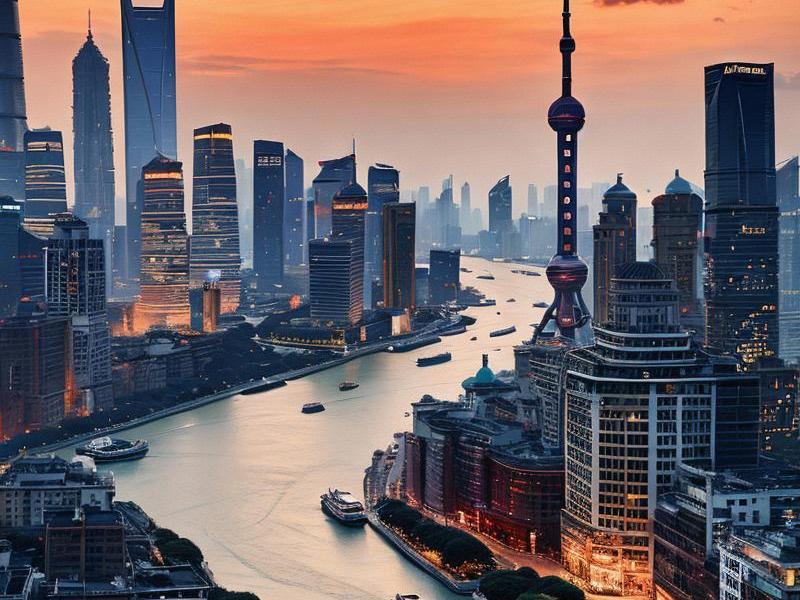This article delves into the multifaceted character of Shanghai, exploring its rapid urban development, its role as a global economic hub, and its rich cultural heritage. Shanghai, a city that has been a witness to China's transformation over the past century, continues to evolve at an unprecedented pace.

Shanghai, often referred to as the 'Pearl of the Orient,' is a city that seamlessly blends the old with the new. It is a metropolis where ancient temples stand in close proximity to futuristic skyscrapers, and where the hum of the stock exchange mingles with the serene sounds of traditional Chinese music. This city, with a population of over 24 million, is not just a major economic powerhouse in China but also a significant player on the global stage.
The economic prowess of Shanghai is undeniable. As one of the four municipalities directly under the Central Government of China, it boasts the highest GDP among all Chinese cities. The city's strategic location at the mouth of the Yangtze River makes it a crucial gateway for trade and commerce. Shanghai's Pudong district, in particular, has emerged as a symbol of the city's economic might. Home to the iconic Oriental Pearl Tower and the Jin Mao Tower, Pudong is a hub of financial activity, with the Shanghai Stock Exchange being a key player in the global economy.
The city's rapid urban development is a testament to its forward-thinking policies and innovative spirit. The Maglev train, which connects Pudong International Airport to the city center in just seven minutes, is a marvel of modern engineering. This high-speed transportation system not only facilitates the movement of people but also underscores Shanghai's commitment to innovation and progress.
Culturally, Shanghai is a melting pot of influences. It has been a center of Chinese art, literature, and fashion for centuries. The city's rich cultural heritage is reflected in its numerous museums, galleries, and theaters. The Shanghai Museum, for instance, houses an impressive collection of ancient Chinese art, while the Shanghai Grand Theatre showcases a wide range of performances, from traditional Chinese opera to contemporary ballet.
上海龙凤419贵族
The Bund, a historic waterfront area, is a popular tourist destination that offers a glimpse into the city's colonial past. Here, visitors can admire the architecture of the former foreign concessions, with their blend of European and Chinese styles. The Bund is also a symbol of Shanghai's resilience and ability to adapt to change, as it has transformed from a trading hub to a vibrant cultural and commercial district.
Shanghai's culinary scene is another aspect that reflects its diverse cultural influences. The city is known for its 'Shanghainese cuisine,' which is characterized by its sweet and savory flavors. From steamed buns filled with juicy pork to delicate dishes made with fresh seafood, Shanghai's food is a feast for the senses. The city's night markets are a popular spot for food lovers, offering a wide variety of street food that is both delicious and affordable.
The city's commitment to sustainability and green development is also noteworthy. Shanghai has been investing in renewable energy sources and promoting energy-efficient technologies. The city's green spaces, such as the Century Park and the Yangpu Riverside Park, provide residents with opportunities to connect with nature amidst the urban sprawl.
上海龙凤阿拉后花园
Education is another area where Shanghai excels. The city is home to some of the best universities in China, including Fudan University and Tongji University. These institutions attract students from all over the world, contributing to the city's reputation as a center of learning and research.
Shanghai's role in global affairs is also significant. It is a member of the World Expo Organizing Committee and has hosted major international events, such as the 2010 World Expo. These events have not only boosted the city's profile but also provided a platform for showcasing China's achievements and aspirations.
The city's future looks promising, with ongoing projects aimed at enhancing its infrastructure and quality of life. The Hongqiao Transportation Hub, which integrates rail, air, and metro services, is set to further strengthen Shanghai's position as a global transportation and logistics hub. The city's smart city initiatives, which leverage technology to improve urban management and services, are also paving the way for a more efficient and livable city.
爱上海
However, Shanghai's rapid development is not without challenges. The city faces issues related to urbanization, such as housing shortages and environmental concerns. Addressing these challenges requires innovative solutions and a commitment to sustainable development.
In conclusion, Shanghai is a city that embodies the spirit of China's transformation. Its economic success, cultural richness, and commitment to progress make it a unique and dynamic metropolis. As Shanghai continues to grow and evolve, it remains a beacon of hope and opportunity for millions of people around the world.